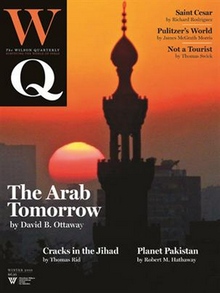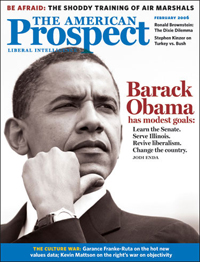
The American Prospect is a daily online and quarterly print American political and public policy magazine dedicated to American liberalism and progressivism. Based in Washington, D.C., The American Prospect says it "is devoted to promoting informed discussion on public policy from a progressive perspective."

In These Times is an American politically progressive monthly magazine of news and opinion published in Chicago, Illinois. It was established as a broadsheet-format fortnightly newspaper in 1976 by James Weinstein, a lifelong socialist.
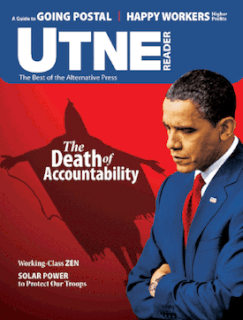
Utne Reader is a digital digest that collects and reprints articles on politics, culture, and the environment, generally from alternative media sources including journals, newsletters, weeklies, zines, music, and DVDs.

Tikkun is a quarterly interfaith Jewish left-progressive magazine and website, published in the United States, that analyzes American and Israeli culture, politics, religion, and history in the English language. The magazine has consistently published the work of Israeli and Palestinian left-wing intellectuals, but also included book and music reviews, personal essays, and poetry. In 2006 and 2011, the magazine was awarded the Independent Press Award for Best Spiritual Coverage by Utne Reader for its analysis of the inability of many progressives to understand people's yearning for faith, and the American fundamentalists' political influence on the international conflict among religious zealots. The magazine was founded in 1986 by Michael Lerner and his then-wife Nan Fink Gefen. Since 2012, its publisher is Duke University Press. Beyt Tikkun Synagogue, led by Rabbi Michael Lerner, is loosely affiliated with Tikkun magazine. It describes itself as a "hallachic community bound by Jewish law".

MIT Technology Review is a bimonthly magazine wholly owned by the Massachusetts Institute of Technology, and editorially independent of the university. It was founded in 1899 as The Technology Review, and was re-launched without "The" in its name on April 23, 1998 under then publisher R. Bruce Journey. In September 2005, it was changed, under its then editor-in-chief and publisher, Jason Pontin, to a form resembling the historical magazine.
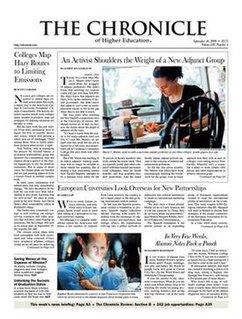
The Chronicle of Higher Education is a newspaper and website that presents news, information, and jobs for college and university faculty and student affairs professionals. A subscription is required to read some articles.

No Depression is a quarterly roots music journal with a concurrent online publication. In print, No Depression is an ad-free publication focused on long-form music reporting and deep analysis that ties contemporary artists with the long chain of American roots music. In April 2020, No Depression introduced digital versions of their print journal. While the print journal remains ad-free, the digital versions include roots-music-related advertisements. Its journal contributors include roots music artists as well as professional critics and reporters, photographers, illustrators, and artists.
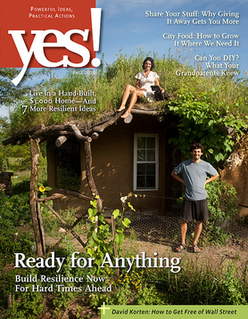
YES! is a nonprofit, independent publisher of solutions journalism. YES! was founded by David Korten and Sarah van Gelder; Christine Hanna, founder and former co-director of Seattle Good Business Network, is the executive director.
Current Biography is an American monthly magazine published by the H. W. Wilson Company of The Bronx, New York, a publisher of reference books, that appears every month except December. Current Biography contains profiles of people in the news and includes politicians, athletes, businessmen, and entertainers. Published since 1940, the articles are annually collected into bound volumes called Current Biography Yearbook. A December issue of the magazine is not published because the staff works on the final cumulative volume for the year. Articles in the bound volumes correct any mistakes that may have appeared in the magazine and may include additional relevant information about the subject that became available since publication of the original article. The work is a standard reference source in American libraries and the publisher keeps in print the older volumes. Wilson also issues cumulative indexes to the set, and an online version is available as a subscription database.
Communities: Life in Cooperative Culture is a quarterly magazine published by the Global Ecovillage Network - United States. It is a primary resource for information, issues, and ideas about intentional communities in North America. Articles and columns cover practical "how-to" issues of community living as well as personal stories about forming new communities, decision-making, conflict resolution, raising children in community, and sustainability.

The Virginia Quarterly Review is a quarterly literary magazine that was established in 1925 by James Southall Wilson, at the request of University of Virginia president E. A. Alderman. This "National Journal of Literature and Discussion" includes poetry, fiction, book reviews, essays, photography, and comics.

Boston Review is an American quarterly political and literary magazine. It publishes political, social, and historical analysis, literary and cultural criticism, book reviews, fiction, and poetry, both online and in print. Its signature form is a "forum", featuring a lead essay and several responses. Boston Review also publishes an imprint of books with MIT Press.

The American Scholar is the quarterly literary magazine of the Phi Beta Kappa Society, established in 1932. The magazine has won fourteen National Magazine Awards from the American Society of Magazine Editors from 1999 to present, including awards for General Excellence. Additionally, the magazine has won four Utne Independent Press Awards from Utne Reader, most recently in 2011 in the category "Best Writing".
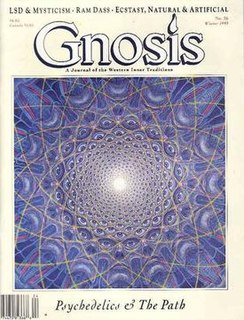
Gnosis was an American magazine published from 1985 to 1999 devoted to the Western esoteric tradition.

The Michigan Quarterly Review is an American literary magazine founded in 1962 and published at the University of Michigan, Ann Arbor.
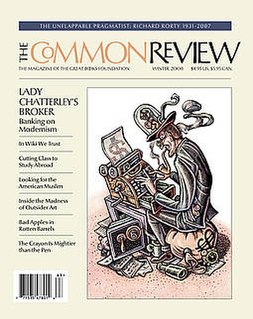
The Common Review was the literary magazine of the Great Books Foundation.
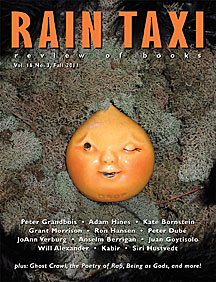
Rain Taxi is a Minneapolis-based book review and literary organization. In addition to publishing its quarterly print edition, Rain Taxi maintains an online edition with distinct content, sponsors the Twin Cities Book Festival, hosts readings, and publishes chapbooks through its Brainstorm Series. Rain Taxi's mission is “to advance independent literary culture through publications and programs that foster awareness and appreciation of innovative writing.” As of 2008, the magazine distributes 18,000 copies through 250 bookstores as well as to subscribers. The magazine is free on the newsstand. It is also available through paid subscription. Structurally, Rain Taxi is a 501(c)(3) non-profit. It sells advertising at below market rates, much of it to literary presses.
Peter Braestrup was a correspondent for The New York Times and The Washington Post, founding editor of the Wilson Quarterly, and later senior editor and director of communications for the Library of Congress. Retiring from journalism in 1973, he founded the Woodrow Wilson International Center for Scholars' Wilson Quarterly, and in 1989 moved to the Library of Congress.
Steven Lagerfeld is the former editor of The Wilson Quarterly, the flagship publication of the Woodrow Wilson International Center for Scholars, which he led from 1999 until winter 2014.

Kyoto Journal is a quarterly magazine based in Kyoto, Japan. Its subtitle, Perspectives from Asia, reflects its commitment to "local voices, from all over Asia" and "ideas that illuminate cultural differences in a positive way, that promote intercultural understanding via specifics, not generalities." In addition to its four main editors, the magazine is staffed by a team of interns and over 30 contributing editors spread throughout Asia. Its diverse readership and list of contributors has been described by former editor Stewart Wachs as a "psychographic" community. Since its founding, the magazine has been entirely produced by volunteers.
